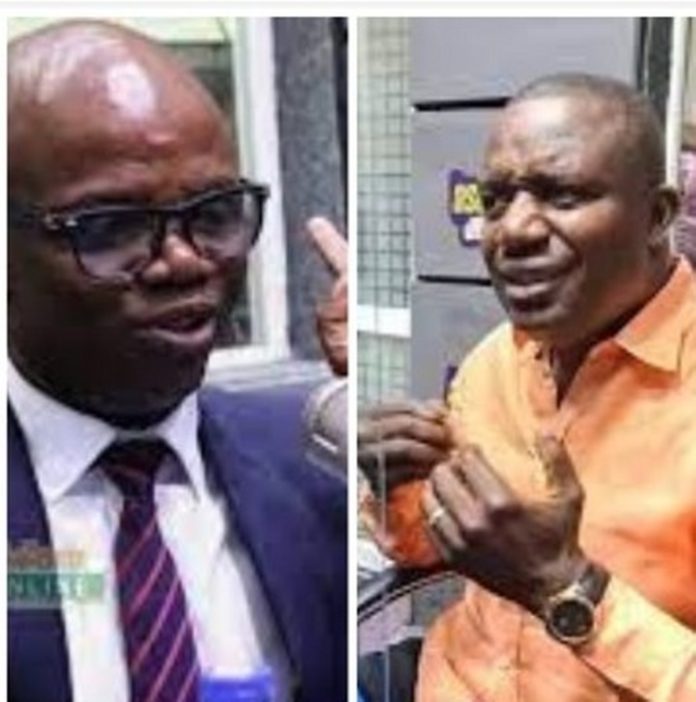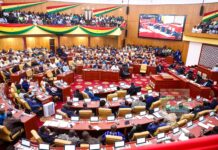
Nhyiaeso Member of Parliament (MP), Stephen Amoah and Yapei Kusawgu MP, John Jinapor have engaged in a heated debate over the prevailing economic woes of Ghana.
The duo who appeared on Asempa FM’s Ekosii Sen expressed diverse views on the measures President Akufo-Addo announced in his address to cushion the citizenry.
The President, on Sunday, addressed the nation for the first time on the state of the economy and admitted that the nation was in crisis.
While some believe the President was truthful about the state of the nation, others have asserted that Akufo-Addo should have admitted he caused the mess and apologised to Ghanaians.
But to Mr Amoah, the Akufo-Addo-led government has been diligent in delivering on its promises but for the covid-19 pandemic that crippled global economies as well as the Russia-Ukraine war.
The two phenomena, he indicated, have hugely impacted the nation, and is optimistic the country would have been better off but for those circumstances.
However, Mr Jinapor who is a member of the Finance Committee in Parliament fought off the assertion, stating the crisis is solely at the doorsteps of Akufo-Addo.
According to him, despite the global economic situation, there are still countries that are better off than Ghana due to good leadership and believe the government should not hide behind the pandemic.
“Covid will impact you Russia-Ukraine war will impact you but if you are resilient, you will make headways. Countries like Tanzania, Uganda, and Kenya are all doing better than us. Togo saved better lives but we did but they are still doing better.
ALSO READ:
Akufo-Addo to blame for current economic woes – John Jinapor
Mahama agrees with Akufo-Addo on this…
“The president wants to blame everybody but will doesn’t want to look internally and how best we can solve these problems. Ghana is not the best when it comes to the debt rate,” he bemoaned.
Despite their disagreements, the duo at a point, however, expressed similar sentiments on the need for government to cut down expenses by reducing the number of appointees at some agencies, and the number of government vehicles fuelled at the pumps among others.


![Kennedy Agyapong is the Joshua to take us to the promised land – NPP MP [Audio] MP for Nhyiaeso, Stephen Amoah](https://www.adomonline.com/wp-content/uploads/2024/05/Ert5EkkXMAQjXZq-565x424-Copy-218x150.jpg)
![I’ll resign if… – Nhyiaeso MP says after Bawumia’s endorsement meeting [Listen]](https://www.adomonline.com/wp-content/uploads/2025/06/WhatsApp-Image-2025-06-19-at-12.24.52-218x150.jpeg)


